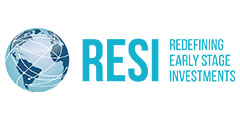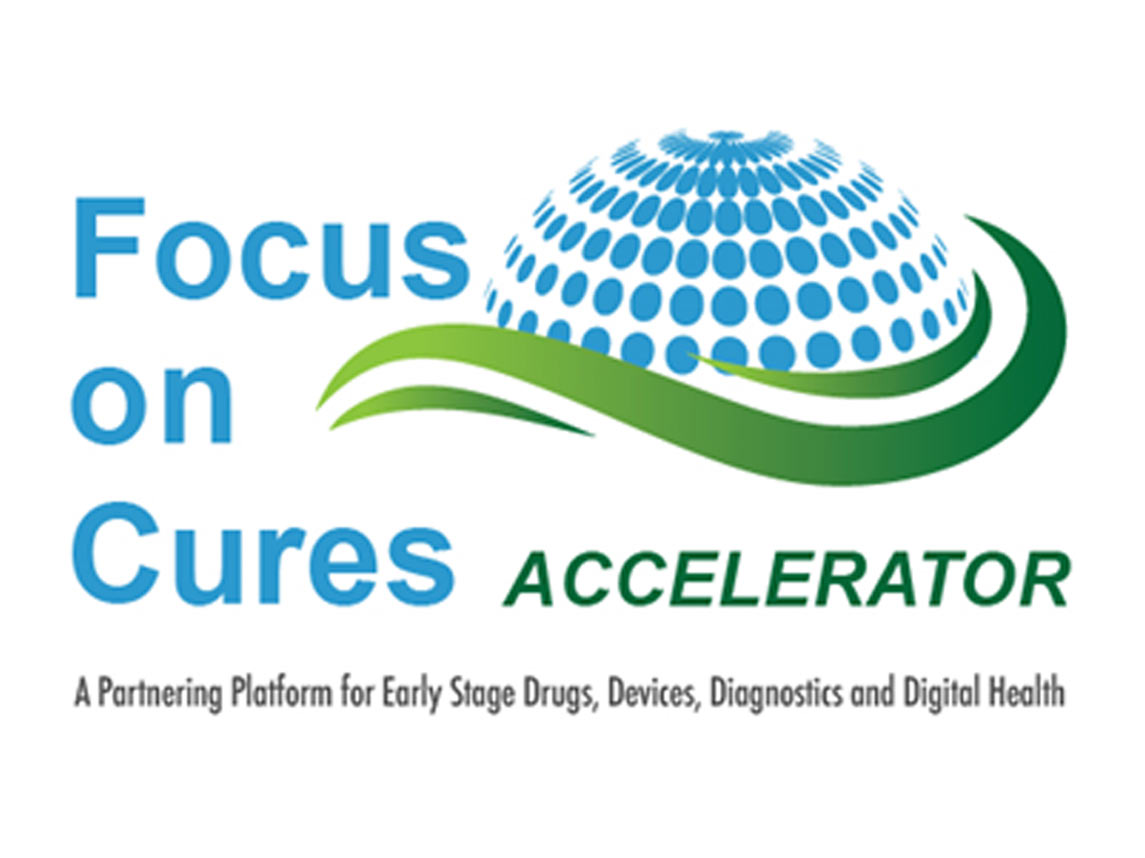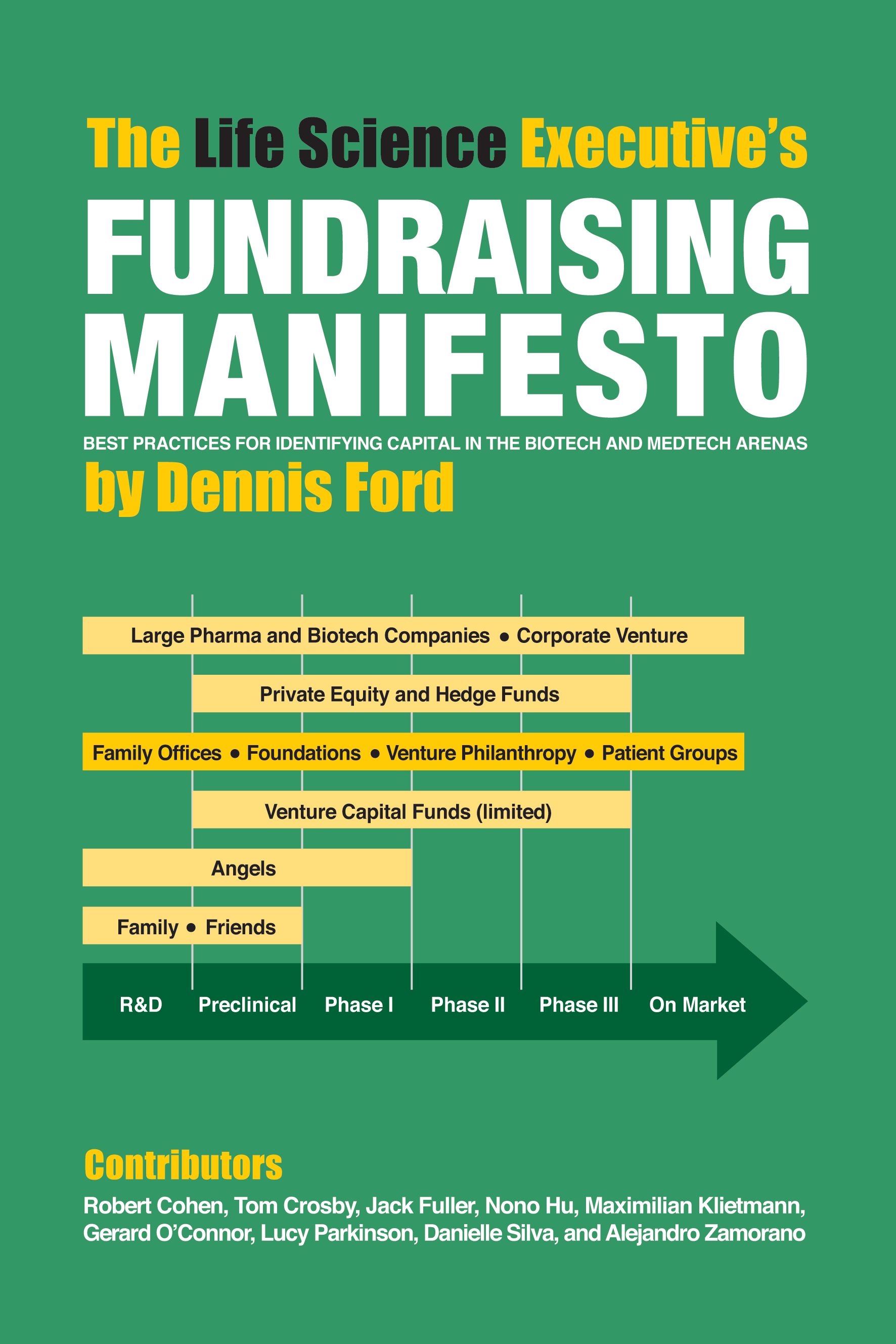LSN Story
LSN Story
Roadshows in the Life Science Arena
Companies encounter significant challenges in securing funding and forming partnerships in the competitive life sciences landscape. Life Science Nation (LSN) is a vital resource, guiding firms through every stage of their journey, from seed funding through Series A, B, C, D, and E to commercialization or exit. LSN doesn’t just connect innovative companies with capital and licensing partners; it provides comprehensive support tailored to each growth stage. LSN empowers life science companies to navigate each stage of their growth journey successfully. LSN’s ecosystem addresses these challenges, offering tailored support for each stage of development:
- Seed and Series A: Overcoming initial fundraising hurdles and establishing credibility.
- Series B and C: Scaling operations and expanding market presence.
- Series D and E: Securing significant capital for clinical trials or market expansion.
- Commercialization or Exit: Facilitating strategic partnerships and market positioning.
The journey begins with a stark reality: many scientist-entrepreneurs emerging from academia lack essential business skills and underestimate the time and resources needed to prepare and execute in the commercial arena. This gap, compounded by outdated entrepreneurial training in global accelerators and incubators, hinders their ability to secure funding and partnerships.
A critical disconnect exists between traditional pitch preparation and the realities of preparing and launching a long-term fundraising and licensing partner campaign. The industry’s focus on polished 30-minute presentations falls short of equipping companies for the marathon of a 9–18-month partnering campaign.
This misalignment significantly contributes to the high failure rate among life science entities. LSN changes this dynamic with its partner-centric products and services that combine entrepreneurial education, sourcing and matching of strategic partner candidates through a curated global database, and LSNs Redefining Every Stage of Investments (RESI) global partnering events.
LSN Is a Unique Funding & Partnering Vehicle
Life Science Nation (LSN) has built a global superstructure for sourcing and funding that features elite global technology assets, investors, and licensing partners seeking them. The international ecosystem consists of life science buyers and sellers, each with curated data profiles that are “matched up” based on the stage of development and product at LSN’s dedicated worldwide partnering events or with the aid of the LSN Global Partner Campaign database for supporting roadshows. This one-of-a-kind partnering ecosystem is unique because it is cross-domain, serving the silos of Drugs, Devices, Diagnostics, and Digital Health (the 4Ds). This wholistic partnering superstructure has various components consisting of the following:
- Life Science Databases: LSN curates two commercial databases: a buy-side of 10 categories of 3500 global early-stage investors and a sell-side of over 60,000 global technology assets.
- Global Partnering Campaign (GPC) Database: A life-science-specific investor database available to scientist-entrepreneurs raising capital which organizes present and future-looking investor data collected and curated by LSN’s Investor Research team
- Business Development Database: A life science company database covering emerging “4D” company profiles, product pipelines, licensing opportunities, financing rounds, technologies, licensing deals, and management contact details.
- LSN SalesForce.com Internal Database: Consisting of 15,000 under-the-radar start-up companies. The typical profile of these firms is freshly minted technology transfer agreements from academia that have received non-dilutive government, regional, or impact funding and are now seeking their institutional seed, series A, B, C, D, and E rounds.
- Partnering Events
- LSN created the world-renowned Redefining Every Stage of Investments (RESI) Conference Series, an established go-to partnering event series for scientist-entrepreneurs, fundraising CEOs, and the investors and collaboration partners who seek them. RESI has five events that take place worldwide, spanning North America, Europe, and Asia, with support from governmental agencies and regional international tech hubs, Incubators, and accelerators.
- RESI partnering events are held in concert with JP Morgan in San Francisco in January, with regional partner Biocat in Barcelona, Spain, in April, alongside BIO USA in June, LSNs home base, Boston in September, and London in December with regional partner One Nucleus.
- The LSN Labs Accelerator facilitates the migration of elite international, regional start-up companies into the global capital arena using the LSN ecosystem. There is a formal, open program for start-up CEOs to receive preparation in organizing and executing a global partnering and fundraising campaign. LSN Labs offers workshops, seminars, classes, and a curriculum that prepares international companies for global fundraising and fully integrates them into LSN’s global partnering network.
I). LSN Global Partnering Campaign (GPC) Database
LSN has employed a team of researchers for a decade whose job is to curate and keep the partnering database profiles up to date through one-on-one phone interviews. The LSN mantra is “data comes in two states, out-of-date and very-out-of-date”. LSN offers partner profiles, that are current, present, and future-looking, which makes them invaluable for launching and executing a successful Global Partnering Campaign. LSN sells this database integrated with SF.com CRM to early-stage startups who are seeking capital investors who can provide seed, up to 2m, series A, 2-10m, and series B, 10-50m. Plus, it includes all the major Big Pharma players and their licensing, co-development, and venture arms. The LSN Global Partnering Database consists of 3500 firms with 10,000 contacts.
LSN tactical value is that, in a few clicks, we can generate a target list of investors and licensing partners, ranging from 400-800 entities, LSN calls this, the Global Target List (GTL), that are a fit for a startups stage of development and product.
The Pricing, Terms and Conditions of the LSN Global Partnering Campaign (LSN GPC) Platform
LSN will offer a several packages of the SF.com and LSN partnering database ranging from $300 and $500 dollar a month. These packages with have real-time access to LSN partner data combined with RESI ticket discounts to the 5 international partnering events that LSN put on every year. Clients can choose a monthly fee structure with terms that are minimum 6 months commitment or elect a one-time annual subscription fee. LSN calculates that is has helped 400 companies raise over $5B dollars.
II.) Redefining Early Stage Investments (RESI) International Partnering Events
 Life Science Nation’s Redefining Every Stage of Investment (RESI) events stand out as a beacon of innovation in the life science industry’s networking landscape. Unlike traditional conferences, RESI events are meticulously crafted to address the unique needs of life science companies, from those seeking seed funding to those ready for Series E rounds. At the heart of RESI’s success is its curated investor network. This isn’t just another gathering of industry professionals; it’s a carefully orchestrated match-making between companies with groundbreaking ideas and the investors and licensing partners actively seeking breakthroughs in life sciences. This targeted approach significantly increases the chances of meaningful connections that can propel companies into new relationships they cannot find in their regions. Its comprehensive coverage across the life science spectrum sets RESI apart. While many events focus on a single sector, RESI breaks down silos, bringing together innovators and investors from Drugs, Devices, Diagnostics, and Digital Health. This cross-pollination of ideas and opportunities creates a fertile ground for collaboration and innovation.
Life Science Nation’s Redefining Every Stage of Investment (RESI) events stand out as a beacon of innovation in the life science industry’s networking landscape. Unlike traditional conferences, RESI events are meticulously crafted to address the unique needs of life science companies, from those seeking seed funding to those ready for Series E rounds. At the heart of RESI’s success is its curated investor network. This isn’t just another gathering of industry professionals; it’s a carefully orchestrated match-making between companies with groundbreaking ideas and the investors and licensing partners actively seeking breakthroughs in life sciences. This targeted approach significantly increases the chances of meaningful connections that can propel companies into new relationships they cannot find in their regions. Its comprehensive coverage across the life science spectrum sets RESI apart. While many events focus on a single sector, RESI breaks down silos, bringing together innovators and investors from Drugs, Devices, Diagnostics, and Digital Health. This cross-pollination of ideas and opportunities creates a fertile ground for collaboration and innovation.
Roadshows in the Life Science Arena
The life science arena is distinctly unique in that startup companies go on global roadshows just like pre-IPO CEOs to raise capital and find licensing deals. Unlike other industries, life science startups coalesce a small team and then get the capital to hire a bevy of service providers to aid in designing, building, and testing their products. Unlike their pre-IPO counterparts, Life Science startup CEOs do not have an experienced underwriting firm with years of practice and a Rolodex of international qualified investors to help launch and fund their startups. Nor do they have anyone producing their global roadshow, setting up their meetings, prepping, educating, and aligning their roadshow pitches and strategy. The Life Science CEOs are basically on their own. LSN helps prepare startups for their global roadshow and has a global partnering ecosystem that companies can leverage to execute their global partnering campaign.
Integrated Global Platform
RESI events are not isolated but fully integrated into Life Science Nation’s broader ecosystem. Participants benefit from access to the Global Partnering Campaign (GPC) Database and can leverage the LSN Labs Accelerator to hone their pitches and strategies. This holistic approach ensures that life science companies aren’t just attending an event, but are part of a larger, supportive community.
Proven Track Record
The proof is in the pudding: RESI’s track record speaks volumes. With over $5 billion in funding facilitated for over 400 startups, these events have demonstrated RESI’s sourcing power with its global investor and licensing partner network. This success is no accident; it results from strategic alignment with major industry gatherings, maximizing exposure and networking opportunities for participants.
Preparing to Go Global
Preparation is vital, and RESI doesn’t leave this to chance. Companies receive specialized training through the LSN Labs Accelerator to maximize their RESI experience. This education empowers startups to engage confidently and effectively with potential investors and partners. RESI’s global focus is essential because companies must leave their region and enter the market. In an increasingly interconnected world, these events serve as a launchpad for companies looking to expand beyond their local or regional domains. They open doors to international opportunities that might otherwise remain out of reach for early-stage companies. But RESI isn’t just about securing funding; it’s about forging lasting partnerships. The events strongly emphasize facilitating strategic alliances and licensing deals, recognizing that sustainable growth often requires more than just capital injection.
Sourcing and Matching Based on Fit
At the core of RESI’s effectiveness is its tailored matchmaking approach. These events leverage LSN’s extensive database and sophisticated matchmaking capabilities to create highly targeted connections between startups and investors. This precision matching increases the likelihood of fruitful partnerships and successful outcomes.
RESI events represent a paradigm shift in how early-stage life science companies connect with investors and partners. By combining focused networking, comprehensive industry coverage, and strategic support, RESI has created a unique platform that is more partnering and transaction-focused than the more generalized industry gatherings. For life science startups looking to make their mark and secure the resources they need to grow, RESI events are not just an opportunity—they’re a crucial stepping stone on the path to success.
III.) The Focus on Cures (FOC) Accelerator
 The Focus on Cures (FOC) Accelerator facilitates the migration of elite international regional start-up companies into the global capital and licensing arenas using the LSN ecosystem.
The Focus on Cures (FOC) Accelerator facilitates the migration of elite international regional start-up companies into the global capital and licensing arenas using the LSN ecosystem.
There is not a formal, open, program for start-up CEOs to receive preparation in organizing and executing a global partnering and fundraising campaign. FOC offers a “nuts and bolts” curriculum of workshops, seminars and classes that prepares international companies for a global fundraise that is fully integrated into LSN’s global partnering network and beyond.
For over a decade, Life Science Nation (LSN) has been matching together elite early-stage technology assets with capital investors, channel partners, and licensing collaborators to help bring these innovative assets to market faster. In this time, LSN has interacted with over 5,000 early-stage fundraising executives and scientist-entrepreneurs who are making a major transition from the academic world to the business development domain.
The Challenge for Scientist-Entrepreneurs and Fundraising CEOs
The problem that LSN is solving with the Focus on Cures (FOC) Accelerator Entrepreneurial Education Curriculum is that these early life science startups who need early-stage funding (Seed, Series A & Series B), all of whom are making this major transition, commonly lack a comprehensive background in the business development, sales, and marketing fields which are essential to growing their company.
There is no standardized methodology for teaching a company how to brand and message itself. There is no reliable, accurate, and current database (besides LSN’s) to get a company a list of global partners that are a fit for their stage of development and product set. There is no tech hub that teaches how to get a list of global partners and then mange that list with a CRM like SalesForce.com, nor do they teach how to prioritize that list into A, B, and C targets to go after and manage. They also do not teach how to launch and stage a partnering campaign and how to make an introductory phone call or write an introductory email. Most importantly, no one teaches the holy grail of canvassing…how to follow up.
The problem is then compounded because early-stage companies also must be able to assemble a list of global capital investors and licensing partners that are a fit for their particular stage of development and product. Whilst many startups do manage to acquire a general investor list or spreadsheet of partners, those lists are never current and accurate, so they will waste valuable time learning the hard lesson of how to aggregate a clean list of partners that are appropriate to pursue. Then, once an early-stage company manages to procure a good list of potential partners, they have to put that list into a Customer Relationship Management (CRM) tool that allows them to properly manage and curate the list. These are all components of learning how to launch and execute a global partnering campaign which are commonly passed over in traditional education courses offered by various tech hub organizations.
Preparing for a Global Partnering Campaign
A global partnering campaign can take anywhere from 9-18 months and therefore, one needs to be fully prepared in all the nuts and bolts of exactly what it will take to be successful. LSN Founder & CEO, Dennis Ford, has written a book on the subject, The Life Science Executive’s Fundraising Manifesto, and over a ten-year period has developed a process for getting scientist-entrepreneurs prepared for a global partnering campaign. Using the book as a basis, Dennis and LSN staff have created an entrepreneurial curriculum that has been very effective in training the scientist-entrepreneurs. This involves a process, that when followed, produces great results for the early-stage company. An essential component of this is the value of getting your story straight and developing an easy-to-understand, compelling narrative about your team, technology, and market (something that is glossed over regularly in traditional entrepreneurial education courses). The slide below features the steps that a startup must go through to get their branding and messaging cogent, and the tools and actions required to go from being a regional startup entity to getting a global partnering campaign launched.

